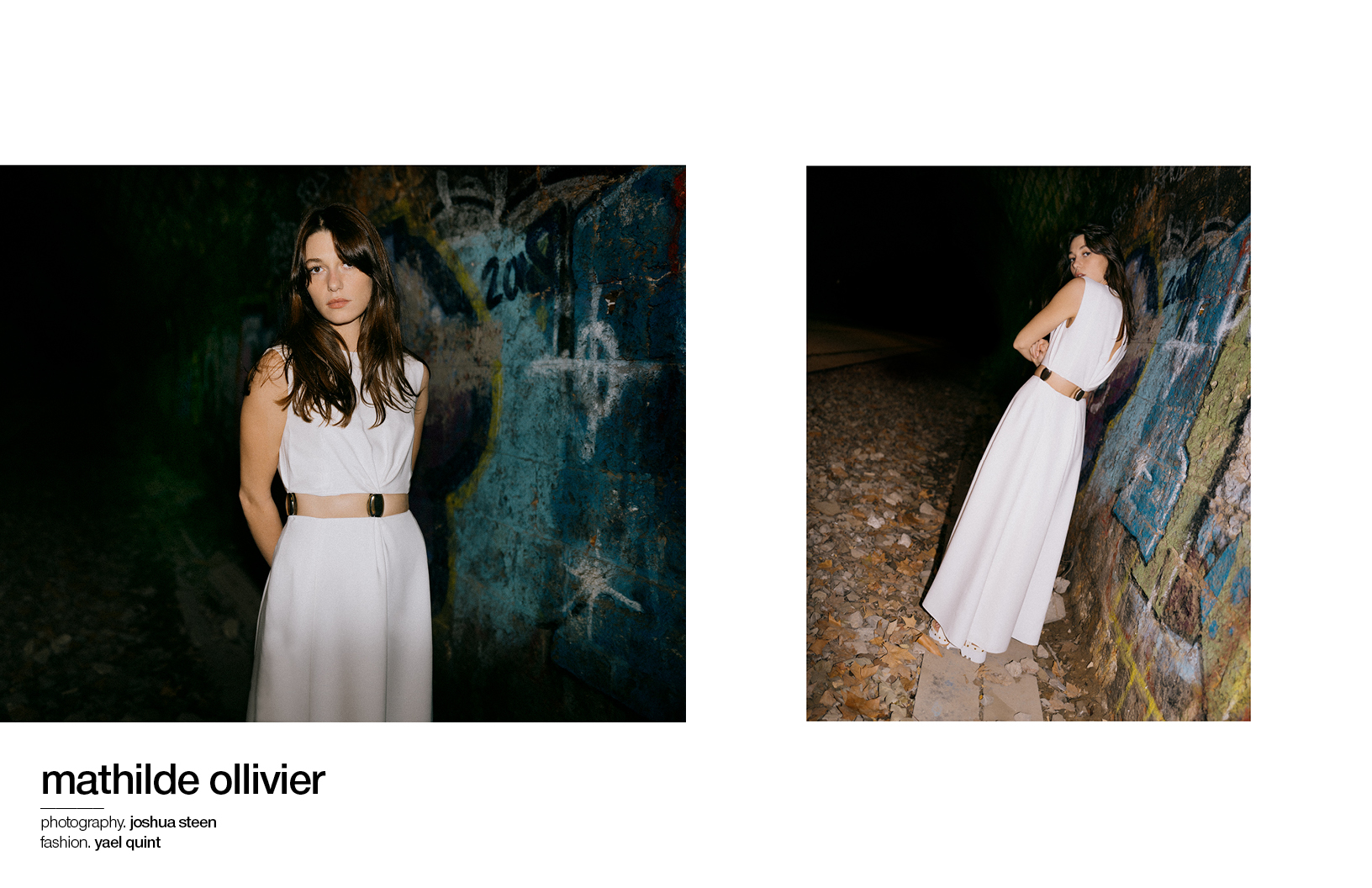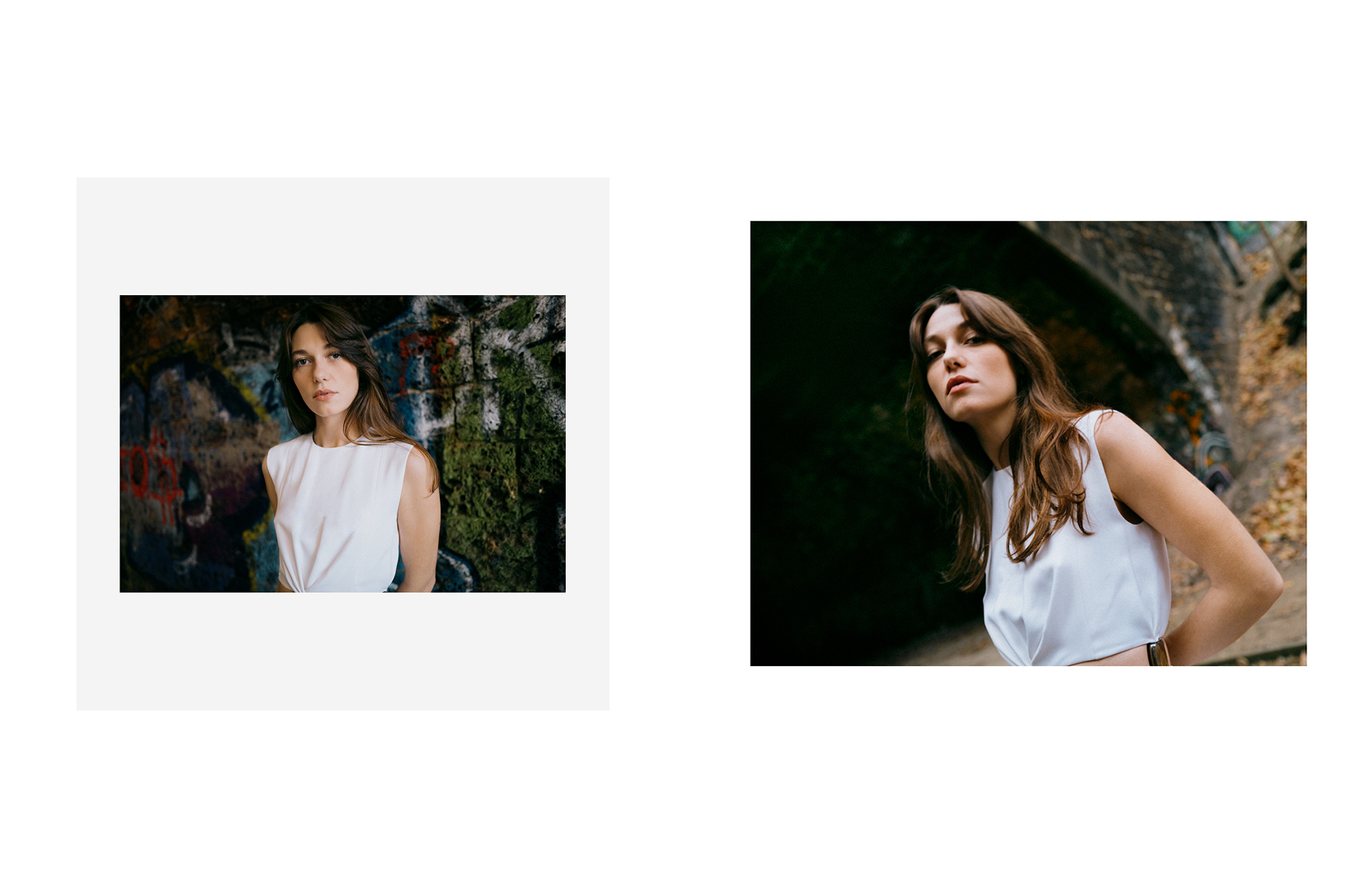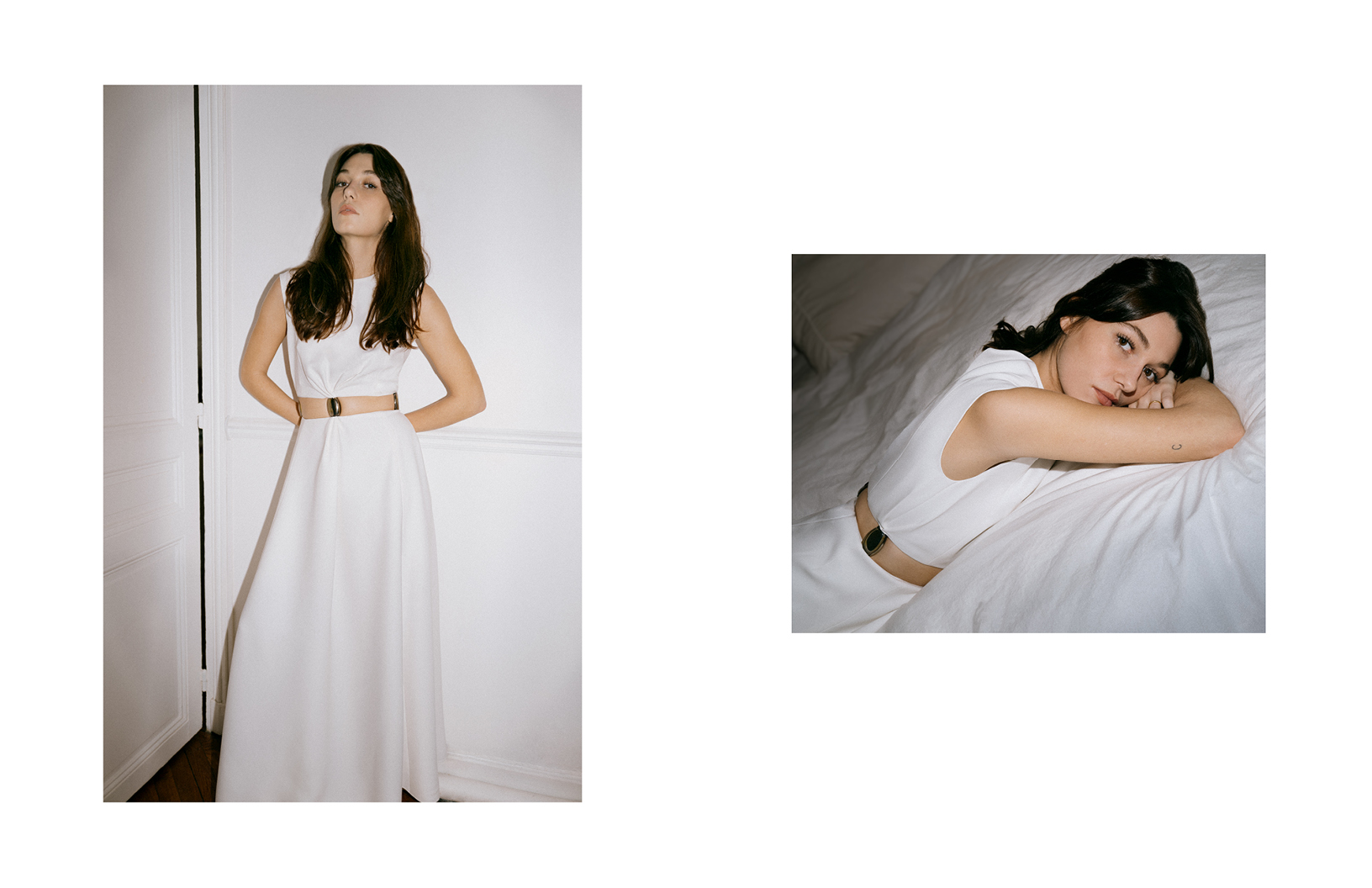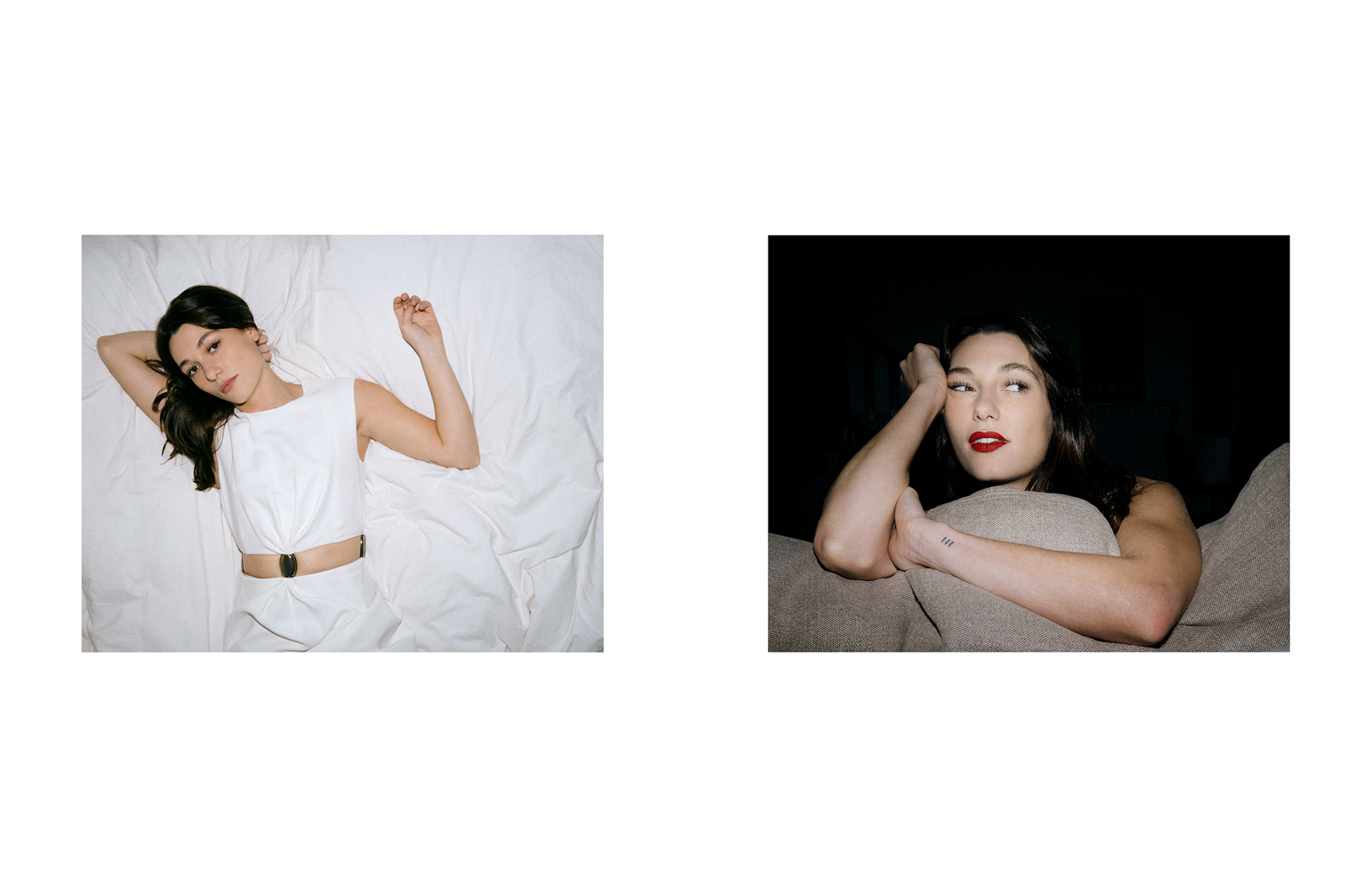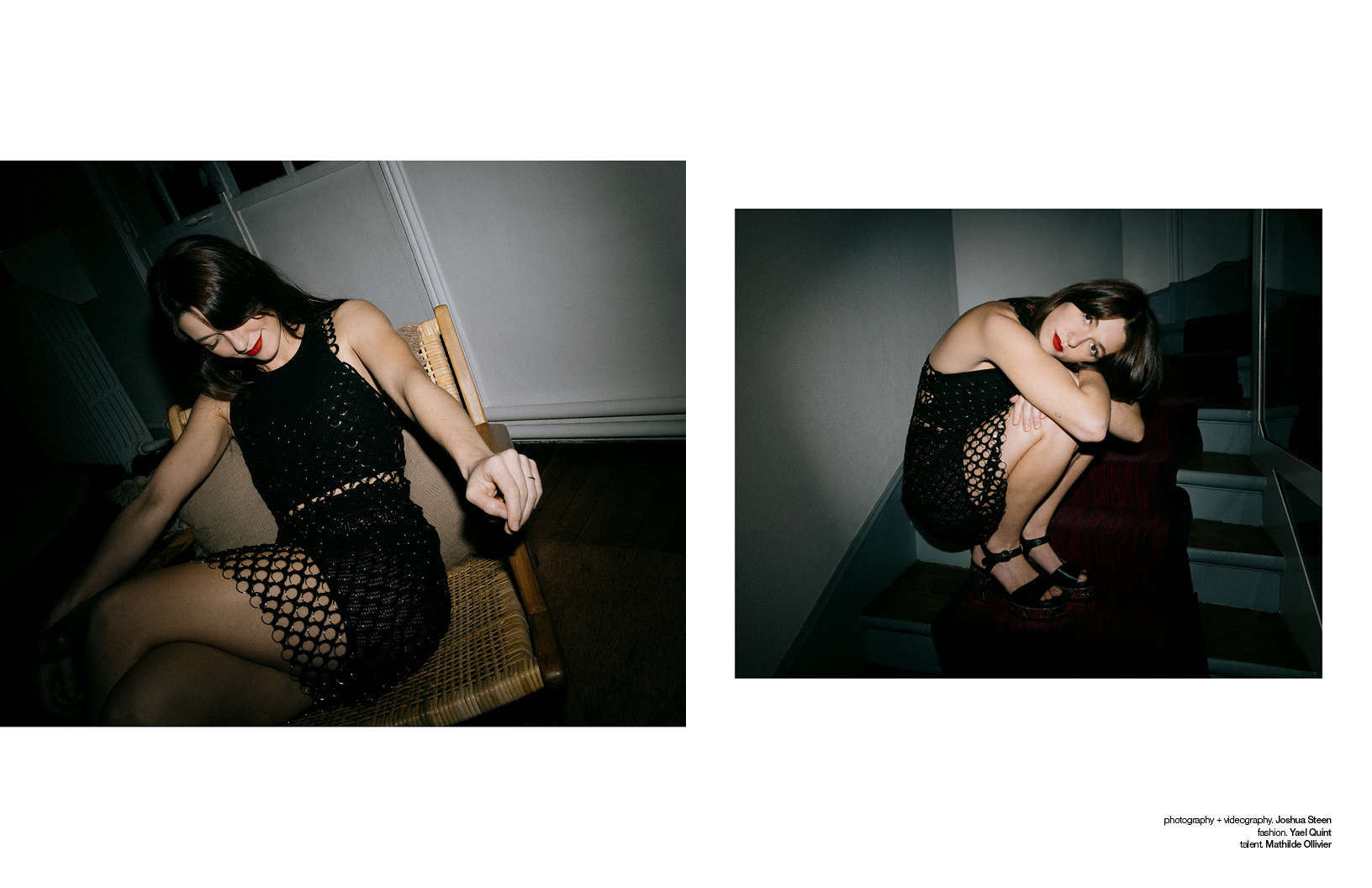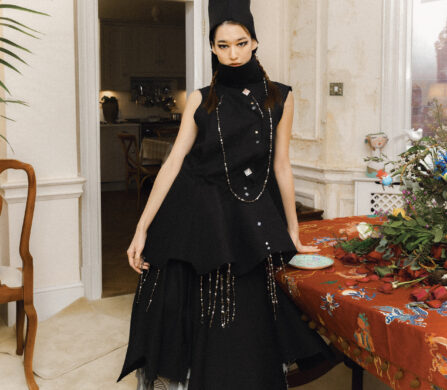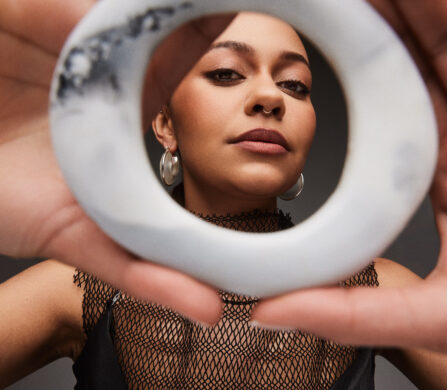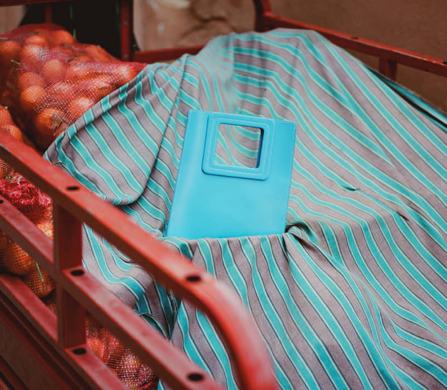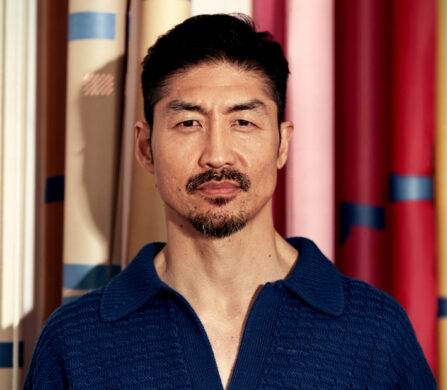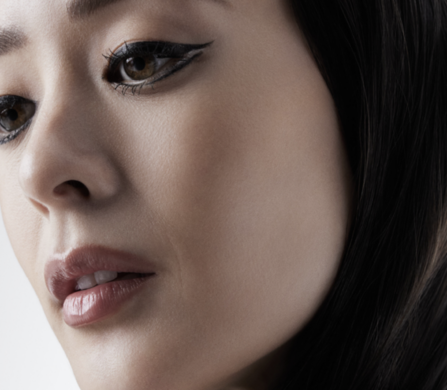Independent and proud, with that element of je ne sais quoi, Mathilde Ollivier is both the muse and the artist of her own picturesque world. Her work represents the quintessence of female emancipation, in the form of exceptional women in front and behind the camera — she’s appeared in Netflix’s mystery drama series 1899 and produced her deeply sensitive documentary The Upright Woman on the social plight of West African women.
In her interpretation of Clémence in 1899, Mathilde effortlessly depicts the pressure of always being perfect in a time where women were like birds in a cage, and the subsequent escape from the weight of a forced marriage. Now, she’s preparing to embark on a whole new adventure with the upcoming Peacock series Mrs. Davis, even though she fantasises about producing her original stories and getting to know herself more.
Mathilde joins Schön! to share her faceted professional nature, her views on promoting the image of a self-made woman, the emotions after 1899’s cancellation, and more.
Mathilde, your artistic background and career are multidisciplinary with credits as an actress, model and, most recently, producer. How did it all start? Was there something or someone that influenced you?
Everything comes from acting. I’ve always wanted to become an actress. Meryl Streep, Catherine Deneuve… All of those amazing actresses made me dream and escape reality for a bit when I was
younger and I wanted to become one of them. I come from a family of only women. My grandmother was a very independent and very proud woman. She decided to learn how to drive and go to work and make her own money. And then my mom educated my sister and I alone. The three of them inspired me so much as being independent and proud and having my opinion and believing in it.
Is there any other passion of yours that you’d like to pursue in the future?
I do a bit of photography at the moment. I used to play the piano a lot and I would love to do that again. I’m very fortunate because I get to work and create a new person all the time for a certain amount of time, and then for a few months I’m not working or I’m preparing something new. So, I can always discover a new passion, a new hobby, and it’s fascinating.
On the big screen, we’ve seen you play characters that are the complete opposite of a damsel in distress — think of Chloe (Overlord) or Clémence (1899). What particular aspects do you look for in a character? What are your dream roles?
I think there is no movie if there is no story. I’m looking for storytelling and a character that has a story and is defending something. I would love to be in something extremely contemporary, or maybe like the early 50s or even super futuristic. My dream roles are not specific because every time I go to work it’s like Christmas day. I feel so blessed to get to do this and every time is an amazing opportunity.
Most of the actors I’ve interviewed in the past seem to have a similar interest in playing a villain or someone that has deep social problems just for the experience of getting to play that character. What about you?
I would love to because I think it’s going to make you discover something inside of you. When you get into a role that it’s so deep, that it’s so out of your mind, you’re allowing yourself to be completely free — because if you play a ‘good’ character you’re always constricted. The film that I’m doing right now is a bit more like this which I’m very excited about, because it’s allowing me to become more wild and dirty.
In 2018, you made your official debut with Overlord produced by J.J Abrams. This was also the first time you approached an action-packed horror after starring in several dramas. What originally made you audition for the role of Chloe? Were you always a fan of the action/horror genre?
I was in New York when I auditioned for Overlord. I wanted to have a visa and live in New York, but it didn’t go like this. So, I had to go back to France and the audition was exactly at the same moment. I was like, Hollywood horror film, big film. I probably won’t get the job, and three days later, the casting director called me and told me that J.J Abrams watched my tape and that I had gotten the part. It was an amazing experience because I got to learn so many different things, like how you held a gun in the 1940s. I loved being on set and when they told me the flamethrower was real I couldn’t stop pressing the thing.
The Upright Woman is your first-ever documentary produced by yourself. What was that experience for you like? Are you planning to produce more?
Absolutely. I’ve started a production company not so long ago to produce films and scripts that are taking the dust on top of the shelf, because making films nowadays is very complicated. If you are not a big producer or you don’t have big names in your film, most of the time they’re not being made. The experience was just fascinating. I got to learn so many different things by just being in the streets, on set locations and figuring everything out. This documentary was amazing because we shot it all around Burkina Faso and a bit in Australia. The story was about this woman, she was a refugee in Australia, and I thought it was so fascinating to actually shoot her going back to Burkina Faso, being confronted by her family again after over 20 years of not being home. It was just incredible to witness all that and to see the culture of different villages. As an actress, it was just so useful and helpful and I would love to do this again, but more as a fiction.
Recently, your interests shifted towards TV series. In 1899, you portray a French newlywed woman, Clémence, who in a sense represents the emancipation of the perfect girl. What did she mean to you? What was your preparation process for approaching this role?
I got very inspired by my grandmother even though it was not at all the same time. It was that period of time when women had to be married and stay forever with their husbands, and it was just really inspiring to get the chance to tell a story that reminds me so much of her. I really love the character of Clémence because I thought she was like a flower that blooms over time. She arrives knowing nothing about life and by the end, she’s way more open and she cares a lot about people. We received the script bit by bit and I started to learn everything about France in the 19th century, especially women’s condition in society. But if you’ve seen the show you will understand that this preparation was for nothing.
The abusive and forced relationship between her and her husband Lucien is one of the focal points of their story. When you read the script, how did you prepare to confront such sensitive themes and scenes? There’s a particular scene where Lucien physically assaults Clémence. What was filming that scene like?
We talked a lot about how to prepare and how our relationship could be, especially because they’re still happening nowadays. Then, we just realised that they don’t love each other but they use each other to escape reality. Clémence took this relationship as something that she took advantage of. She didn’t love him, she didn’t care about him, so everything was easier to approach. For the scene, we worked with the stunt creator who guided us in terms of where we should put the hand and what should be the emphasis on my head to pretend it was a big hit. It’s not the most pleasant scene to shoot, like sex scenes, but if you’re surrounded by the right people everybody takes care of everyone.
Unfortunately, the series has been cancelled by Netflix due to its small popularity. What was your initial reaction to hearing the news? If there ever will be a second chance to play Clémence, how would you want her evolution to be like?
I cried. It was very sudden and nobody expected this. I was really disappointed because the story is not finished. On the day, I was very sad obviously, but then I just realised that I had such a huge opportunity and chance to work with so many talented people from all around the world. Bo [Baran Odar] and Jantje [Friese] are geniuses, and to get to work with them it’s such a privilege. This is something that I will always have in my heart very deeply. I think that Clémence would’ve been out of men completely, finally free and independent.
On a more positive note, you’re reportedly joining the cast of Mrs. Davis, an upcoming Peacock series. Can you tell us more on what we can expect?
We actually just finished the show. It’s again something very crazy about a woman who gets in touch with virtual reality and this AI is controlling the world. I think this will be very surprising to people because there are two stories in one and mine is completely different from the topic of the show. Damon Lindelof is amazing and what he wrote is just mind-blowing.
Finally, what are your resolutions for the year? What’s next for you?
I’m starting to shoot a movie in February in Argentina and it’s the director’s first feature. The challenge is that it’s in Spanish, so I’m learning to speak the language as well. As for my resolutions, I hope to keep creating and be happy. Life is an eternal growing up and I think getting to learn yourself a little bit more every year is very important.
1899 is streaming on Netflix.
photography + videography. Joshua Steen
fashion. Yael Quint
talent. Mathilde Ollivier
words. Gennaro Costanzo


Schön! Magazine is now available in print at Amazon,
as ebook download + on any mobile device












